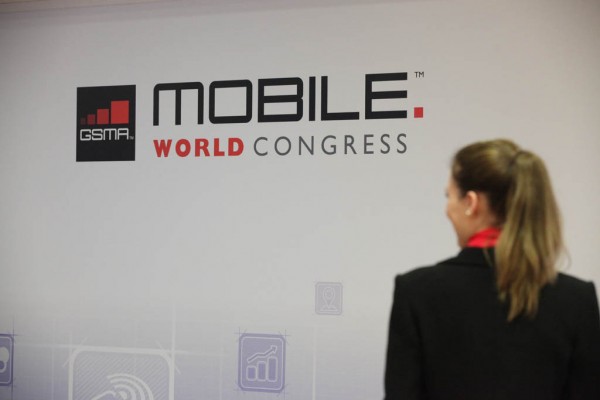
It’s a debate that’s been ongoing for years in the United States, and now SingTel has become the latest telecom operator to ask for the likes of WhatsApp and Skype to pay it money to use its networks.
SingTel chief executive Chua Sock Koong has reportedly called on regulators to let telcos seek payment from the so-called over-the-top (OTT) Internet players, while speaking at the Mobile World Congress in Barcelona this week.
Failing that, she said, it would not be able to continue investments like the $1 billion it had sunk into upgrading its Aussie subsidiary Optus’ fixed and mobile networks.
Money talks, and there’s nothing like threatening not to upgrade a network to get the attention of government regulators.
But is SingTel being unreasonable here? For pure adherents to the Net neutrality cause, any form of special payment to give a “fast lane” for a service is bad news, because it enables dominant players to throttle the competition out of the game.
Yet, in the complicated network of networks, companies do pay for some sort of special lane. Consider how big companies, such as Apple or Microsoft, for example, keep their websites running when they launch the next big product.
They distribute that product video by caching it at various parts of the world, so their main server doesn’t crash under the load. Is this a special lane? It’s debatable, but users won’t complain as long as the video is smooth, never mind this ideal that all things should be equal on the Net.
So, what SingTel is asking for may not be unlike any regular business deal that a telco would cut with a content player to deliver a service over its network smoothly. Interestingly, Singapore’s operators have recently been partnering such OTT providers – SingTel has worked with WhatsApp too to provide a service for prepaid users.
However, what users should worry about is telcos forming a cartel to block out the innovation that the Internet world brings a lot faster to users than a collection of slow-moving telcos.
Witness how slowly MMS (multimedia messaging service) has taken off, compared to WhatsApp, or any of the increasingly popular rivals such as Line or WeChat.
Telcos have always said they want to avoid being a “dumb” pipe delivering all these services that ride on their networks for free – hence the term “OTT” – but they have hardly delivered the innovation in spades themselves.
Look too at how the mobile Internet has evolved. Years after the first 3G services were launched to much hand-wringing by telcos, in came Apple with the iPhone and App Store to finally catalyse the biggest adoption of their data networks yet.
Seen that way, it’s pretty strange for telcos to be asking for these very same people – the computer and Internet folks out of Silicon Valley – to pay more. Without the WhatsApps and Skypes of the world, their 3G, never mind 4G, networks will be hardly used.
Unless that’s the world that telcos want, of course. In years gone by, the annual telco cozy-up at the former 3GSM World Congress, before it was called Mobile World Congress, involved none of the Mark Zuckerbergs and billion-dollar upstarts like WhatsApp.
But were the telcos really happy then? Ironically, back in those days, they were searching hard for a “killer app”, a kind of WhatsApp or Facebook, to jumpstart the mobile Internet.
The takeaway for regulators is this – ultimately, if a deal cut between SingTel and WhatsApp makes a service more reliable for users at a reasonable price, there’s no argument that it’s just another business deal.
But such agreements can also lead to a slippery slope, of cartel-like telco behaviour. There’s already a fine example of this. When SingTel, which owns about half the Singapore mobile market, drastically cut back on free mobile data bundles in 2012, the other two telcos swiftly followed.
If deals between telcos and content providers end up destroying competition and retarding innovation, consumers lose out. And when people stop using their networks because of high cost or a lack of great content, telcos too will suffer. They will surely own the dumbest pipe then.





As a Singtel customer, I’m feeling so sick to hear this. Seriously, like how much money do these people need to go about their life? F*ck. F*ck. F*ck.
So they want to make this compulsory? $6 for what, 30mb of data per mth? No way.
http://info.singtel.com/personal/phones-plans/mobile/vas/whatsapp-pass/detail
Its just pure greed. Whatsapp and likes are taking massive amounts of profits from the telco’s and they dont like it one bit. This has nothing to do with the consumer, they arent going to upgrade the networks so we can send sms’s faster. If they do this will they start charging for iMessages too?
The sooner companies like Google and Apple take over the internet providing the better. We can make calls, send messages and everything else over the internet, so why do we need the Singtels and Vodafones of this world? If google and apple provided us with the internet we could have cable TV channels too. You wouldnt have to pay so singtel or starhub for a whole bunch of channels you dont want to watch because of the bundles, and you could watch what you want when you want.
The benefits to the consumer if the tech companies take over the service providing will be endless. If Singtel charge for using Whatsapp, we should all stop using whatsapp, sinmple!
If you can’t innovate, subjugate
SingTel is run by retards………..